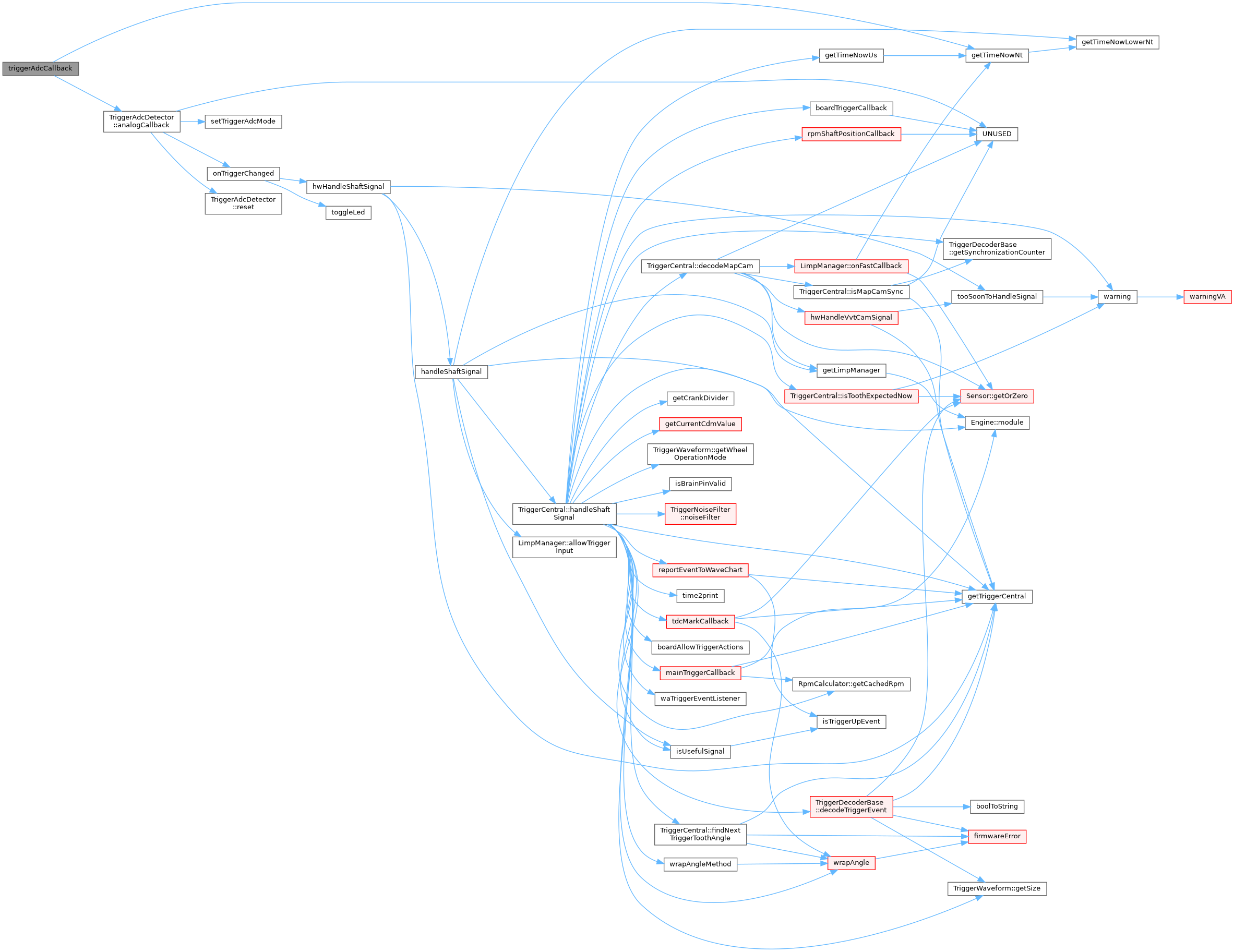Detailed Description
Typedefs | |
| typedef adcsample_t | triggerAdcSample_t |
Enumerations | |
| enum | triggerAdcMode_t { TRIGGER_ADC_NONE = 0 , TRIGGER_ADC_ADC , TRIGGER_ADC_EXTI } |
Functions | |
| void | onEcuStartTriggerImplementation () |
| void | onEcuStartDoSomethingTriggerInputPins () |
| void | startTriggerInputPins () |
| void | stopTriggerInputPins () |
| adc_channel_e | getAdcChannelForTrigger (void) |
| void | addAdcChannelForTrigger (void) |
| void | triggerAdcCallback (triggerAdcSample_t value) |
| void | setTriggerAdcMode (triggerAdcMode_t adcMode) |
| void | onTriggerChanged (efitick_t stamp, bool isPrimary, bool isRising) |
Typedef Documentation
◆ triggerAdcSample_t
| typedef uint16_t triggerAdcSample_t |
Definition at line 21 of file trigger_input.h.
Enumeration Type Documentation
◆ triggerAdcMode_t
| enum triggerAdcMode_t |
| Enumerator | |
|---|---|
| TRIGGER_ADC_NONE | |
| TRIGGER_ADC_ADC | |
| TRIGGER_ADC_EXTI | |
Definition at line 27 of file trigger_input.h.
Function Documentation
◆ addAdcChannelForTrigger()
| void addAdcChannelForTrigger | ( | void | ) |
Definition at line 158 of file trigger_input_adc.cpp.
Referenced by setAdcChannelOverrides().


◆ getAdcChannelForTrigger()
| adc_channel_e getAdcChannelForTrigger | ( | void | ) |
Definition at line 150 of file trigger_input_adc.cpp.
Referenced by addAdcChannelForTrigger(), and calcFastAdcIndexes().

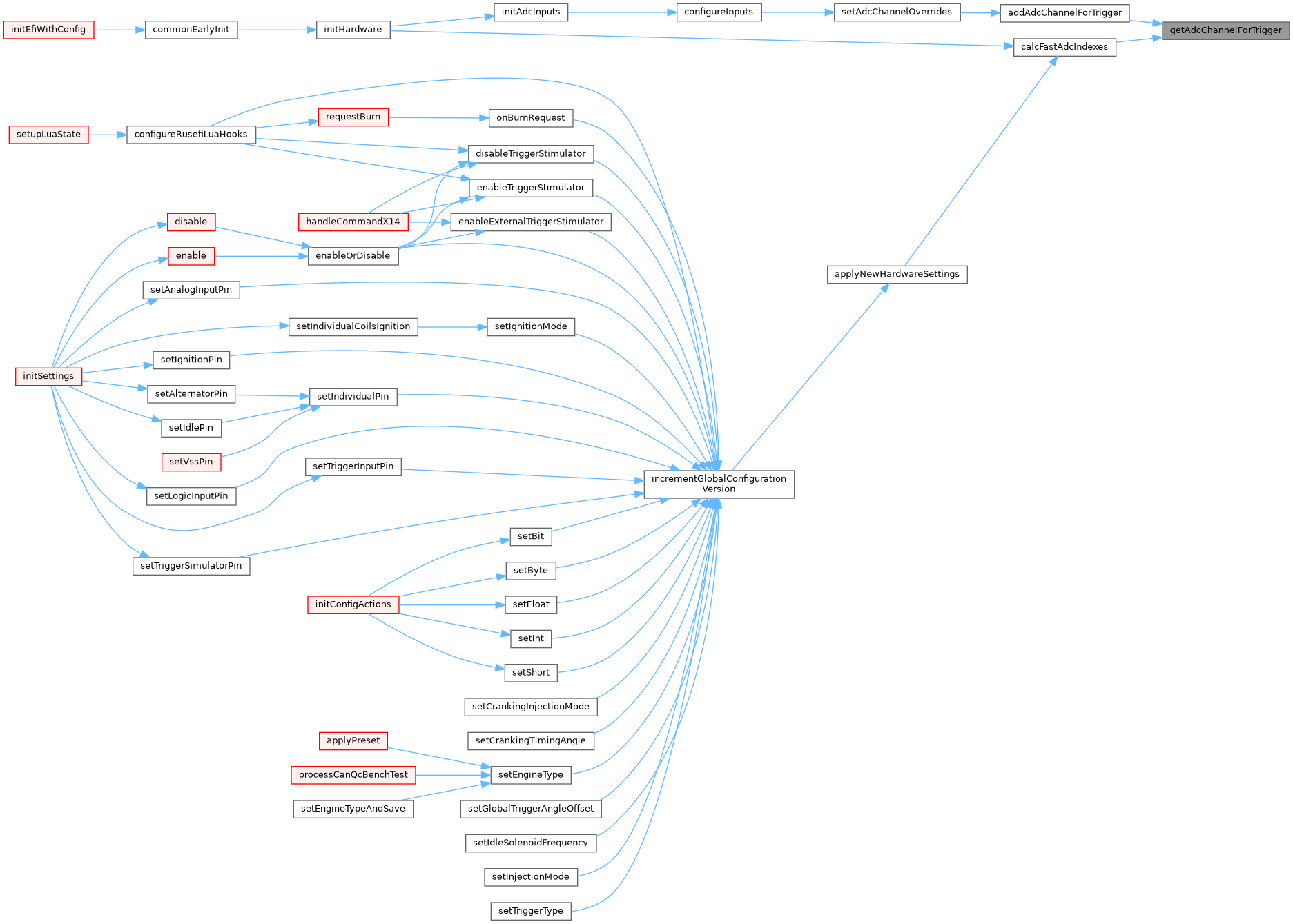
◆ onEcuStartDoSomethingTriggerInputPins()
| void onEcuStartDoSomethingTriggerInputPins | ( | ) |
Definition at line 167 of file trigger_input.cpp.
Referenced by initHardware().


◆ onEcuStartTriggerImplementation()
| void onEcuStartTriggerImplementation | ( | ) |
Definition at line 160 of file trigger_input.cpp.
Referenced by initHardware().

◆ onTriggerChanged()
Definition at line 165 of file trigger_input_adc.cpp.
Referenced by TriggerAdcDetector::analogCallback(), and TriggerAdcDetector::digitalCallback().
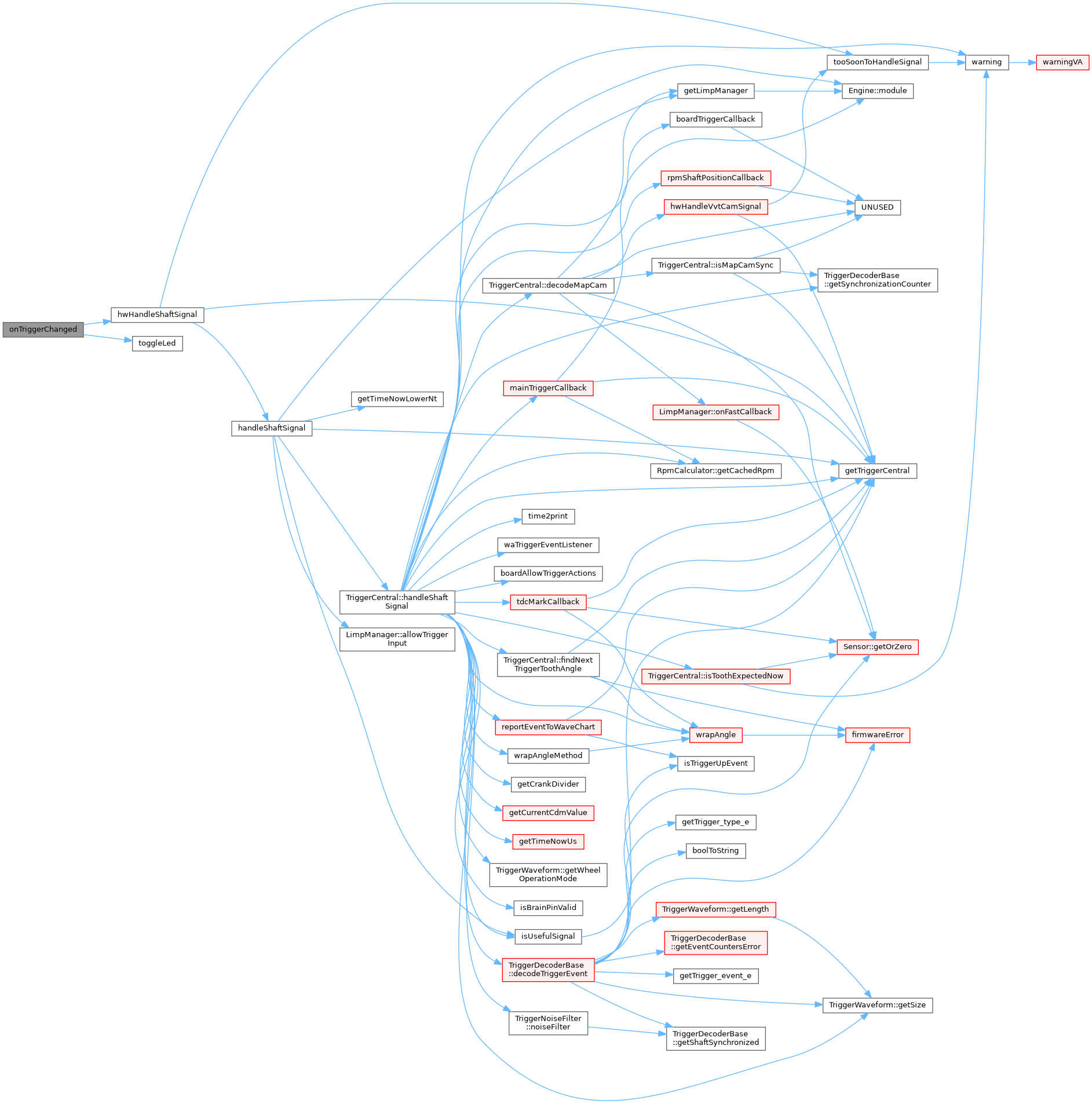

◆ setTriggerAdcMode()
| void setTriggerAdcMode | ( | triggerAdcMode_t | adcMode | ) |
Definition at line 72 of file trigger_input_adc.cpp.
Referenced by adcTriggerTurnOnInputPin(), TriggerAdcDetector::analogCallback(), and TriggerAdcDetector::digitalCallback().

◆ startTriggerInputPins()
| void startTriggerInputPins | ( | ) |
Definition at line 145 of file trigger_input.cpp.
Referenced by startHardware().

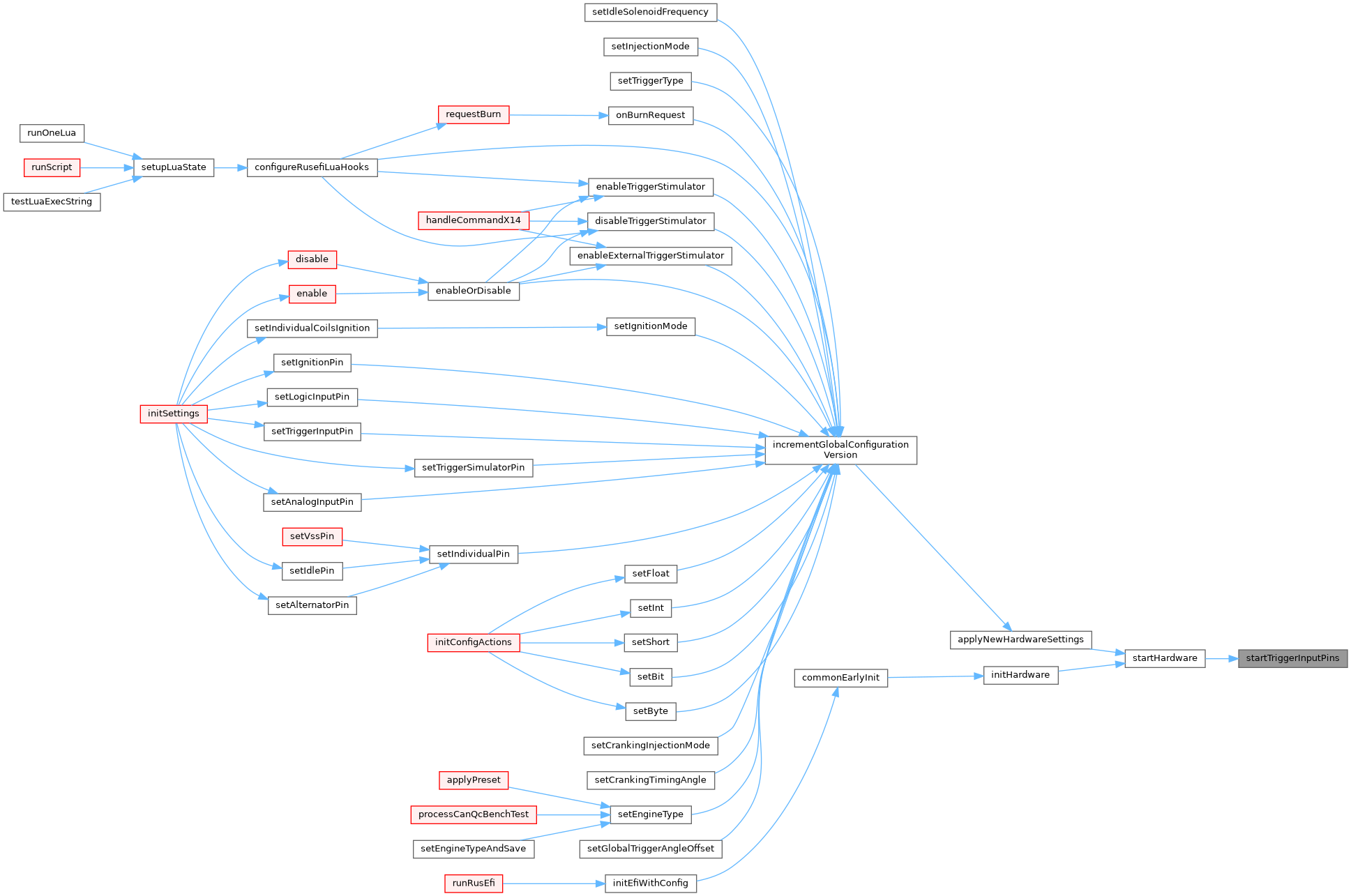
◆ stopTriggerInputPins()
| void stopTriggerInputPins | ( | ) |
Definition at line 130 of file trigger_input.cpp.
Referenced by applyNewHardwareSettings().

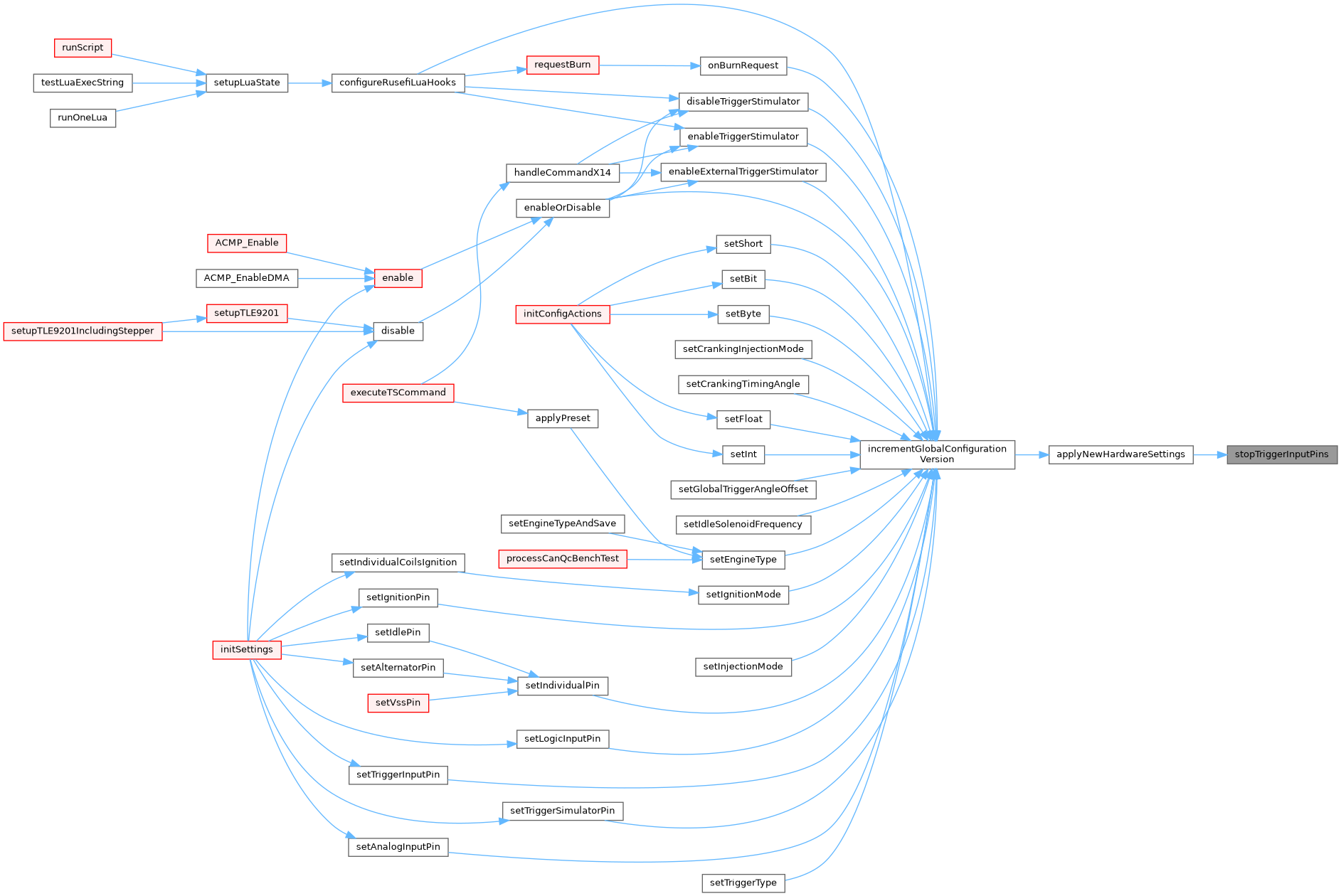
◆ triggerAdcCallback()
| void triggerAdcCallback | ( | triggerAdcSample_t | value | ) |
Definition at line 92 of file trigger_input_adc.cpp.
Referenced by onFastAdcComplete().
